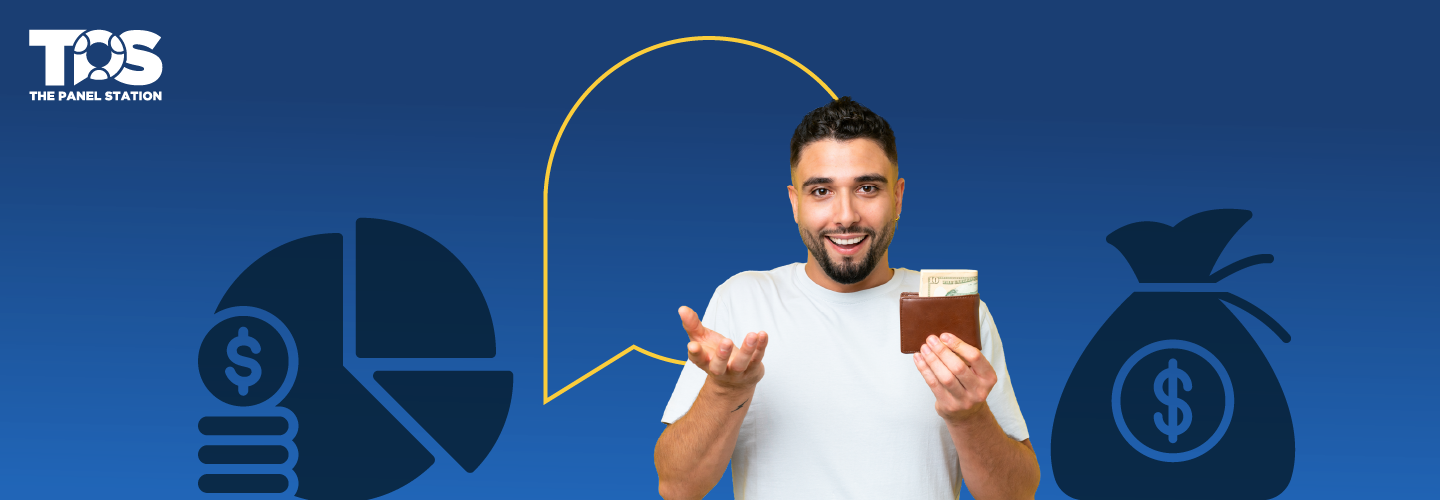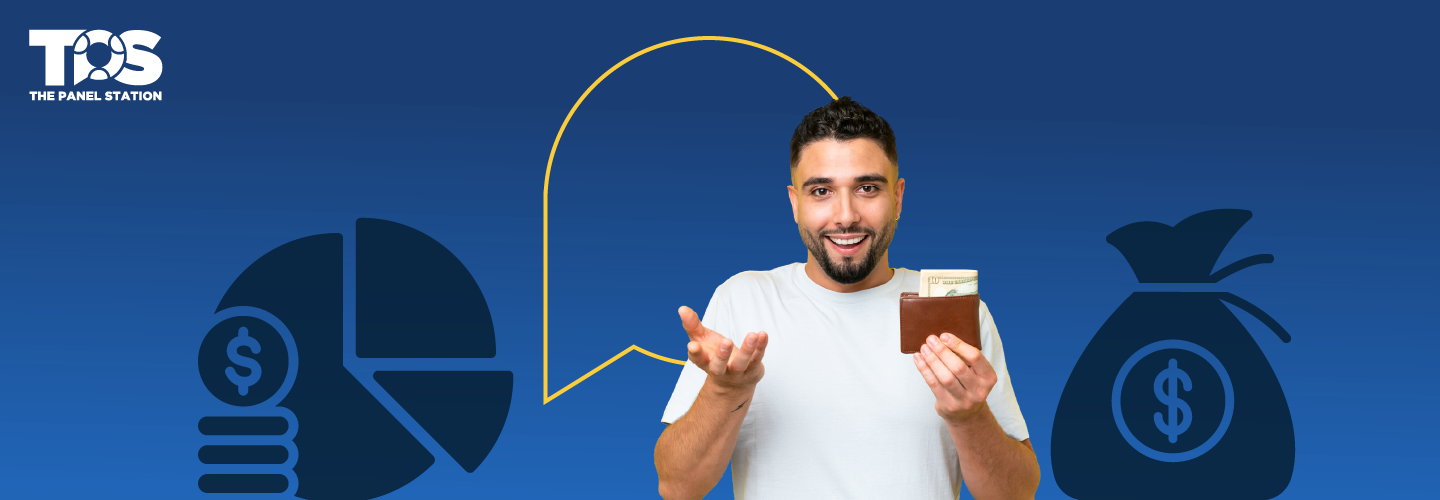

Living or Surviving: How People Feel About Their Finances Today
If you could listen to the financial conversations inside homes across India’s cities, South Africa’s suburbs, the UK’s households, Nigeria’s townships, the United Arab Emirates’ apartment blocks, Italy’s family kitchens, Kenya’s streets, and the neighborhoods of the USA, you would hear the same themes being repeated:
“Prices are rising. Needs are multiplying. Savings are shrinking. Are we doing our best?”
Across 122,330 respondents from more than 60 countries, the TPS Pulse research on Money and Meaning reveals a world where many households are balancing not just budgets, but priorities, responsibilities, and aspirations. Households are not collapsing, but they are stretched. They are not overspending, but they are adjusting. They are not avoiding saving, but they are negotiating for it every month.
TPS Pulse Research reveals a real picture of people trying to build financial stability while navigating real-world pressures. This is not about extremes. It is about the daily financial decisions that shape how people live.
Financial Comfort: Stable Enough, But Not Comfortable
When we asked people to describe their current household financial situation, the responses drew a familiar global pattern.
How Comfortable Do Households Feel Financially? (Global)
More than 57 percent of respondents said they are comfortable or managing fine, and about 29 percent said things feel “tight but manageable.” Only 38.0 percent describe their situation as difficult or very difficult.
Across countries, the picture shifts slightly:
- India, Egypt, United Arab Emirates lean towards “comfortable”
- South Africa, United States of America, United Kingdom, Kenya, Indonesia show significantly higher levels of financial difficulty
- Nigeria, Italy, Malaysia, Brazil sit in between
The world is not in a financial freefall, but it is also not relaxing. People describe themselves as stable but stretched.
Share Your Opinions, Shape The Brands That Feels Right for You
Household Spending Is Rising Almost Everywhere
We asked respondents how their household spending has changed compared to last year.
Change in Household Spending Over the Last Year (Global)
More than 57 percent say spending has increased, only 14 percent say it decreased.
This rise is visible across India, South Africa, the United Kingdom, Nigeria, Italy, the United Arab Emirates, Egypt and Kenya. The combination of higher living costs and increased consumption needs is pushing households to spend more than they did a year ago.
What Is Getting More Expensive?
We asked which categories of expenses increased the most in the last three months. Respondents could choose multiple categories.
Expenses That Increased the Most (Global)
The top three categories tell the story perfectly:
- Food
- Electricity, water, gas, internet
- Healthcare
Over 65% people say the rise is across three major essential categories. This is true across India, South Africa, Nigeria, Egypt, the United Kingdom, Indonesia, and Italy. These are non-negotiable essentials, and when essentials rise, everything else becomes harder.
Are Households Confident About Managing Monthly Expenses?
Despite rising costs, many households still believe they can manage their monthly expenses
Confidence in Managing Monthly Expenses (Global)
The average confidence score is 3.72.
This means people are adapting. Households in India, Egypt, the United Arab Emirates, and Malaysia show higher confidence, while those in South Africa, the United States of America, the United Kingdom, and Kenya feel more pressure.
Confidence does not mean comfort. It means people are coping with discipline, sacrifice, and difficult trade-offs.
Saving Money: Possible for Some, Hard for Many
We asked how easy or difficult it is to save money right now.
How Easy or Difficult Is Saving Today? (Global)
The average score is 3.13, which means saving is challenging but not impossible.
Households in India, Egypt, and the United Arab Emirates report it is slightly easier. Households in South Africa, Kenya, Indonesia, and the United States of America find it significantly harder.
Essentials First: How Households Prioritise Spending
We explored how respondents make spending decisions.
Spending Priorities (Global)
86% people across the world across all regions and age groups focus on essentials and balance needs v/s wants. This is an important and real evaluation of the global economic conditions and leads to an important question – Are we really growing?
When we asked which categories take most of the monthly budget, the answers were clear. 81% of the expenses are on essentials and priorities.
The top three spending priorities are:
- Groceries
- Health
- Rent / house expenses
These dominate across India, the United Kingdom, South Africa, Nigeria, Italy, the United Arab Emirates, Egypt and Indonesia.
The reality is value for money is the ‘King of Every Purchase Decision’ and more than 75 percent check prices always or often, whether they are in India, the United Arab Emirates, South Africa, the USA, UK, Indonesia, Nigeria, Italy, or Egypt. While the consumers are careful, the meaning is something different.
This does not seem like we are growing, rather the expenses are growing, and people are struggling to live a life versus just surviving.
Households are not careless; they are intentional.
People use a mix of old and new methods when it comes to tracking and spending money. We wanted to understand how people track, manage and own expenses. People manage money not only through apps and tools, but through conversations, habits, and family agreements.
Methods Used to Track Spending (Global)
The reality is only an average of 41.3% people across all markets can or really track their expenses. This means, either they do not have money left to track or there is still challenge in financial hygiene.
Are People Saving Regularly? Not Really
Regularity of Saving (Global)
Only 41 percent save consistently. The rest save occasionally, rarely, or not at all.
The most common barriers include:
- High monthly expenses
- Unexpected costs
- Family responsibilities
- Unstable income
- Loan and EMI payments
Across South Africa, Kenya, Nigeria, Indonesia, and the United States of America, income instability and shocks stand out as major barriers.
This really means that, people have less money to save for future, this means the future is tough and uncertain and can anytime lead to chaos with small shift in the global macro-economic conditions.
Cost of Living: The World Feels the Pinch
How Expensive Does Life Feel? (Global)
About 83 percent say cost of living is high or very high, and only 5 percent say it is low.
What This Means:
Majority households are not struggling they are in the verge of drowning, debts rising and earning opportunities shrinking, but they are treading hard, and surviving, but not living. From India to the United Kingdom, from South Africa to the United States of America, from Nigeria to Egypt to Indonesia and Italy, the story is the same:
- Expenses are rising
- Savings are pressured
- People are budgeting carefully
- Essentials dominate the wallet
- Value for money drives decisions
- Price comparison is routine
- Emergency savings are a priority
- Cost of living feels high everywhere
- But there is also resilience:
- People track money seriously
- They prioritise essentials
- They plan, juggle, and adjust
- They keep financial goals in mind
- They stay prepared for shocks
- They balance security and small joys
This is the world of Money and Meaning:
A world where households are trying to build stability and dignity under rising pressure.
This is exactly what TPS is built for:
Turning opinions into insights that reveal how people really live, what they compromise, and what they hope for.
Disclaimer:
These insights are not just for brands; they are for anyone trying to understand how decisions are made in 2025-26. The more people share, the clearer the picture becomes.

Your opinions shape things you love, Make your voice count by sharing your opinions.
FAQ's
1. How do people feel about their finances today?
People globally feel cautious about their finances today. Rising living costs, economic uncertainty, and changing income patterns have made many individuals more focused on budgeting, saving, and managing financial risk.
2. What are the main financial concerns people had in 2025?
The main financial concerns included inflation, job stability, rising expenses, and long-term financial security. Many people were concerned about maintaining their standard of living while preparing for future needs.
3. Are people confident about their financial future?
Financial confidence varies widely, but overall sentiment is mixed. Some people feel hopeful because of new income options, but many remain unsure about handling emergencies, rising costs, and long-term financial goals in an unpredictable economy.
4. How has inflation affected personal finances?
Inflation has reduced purchasing power, forcing people to prioritize essential spending and cut back on discretionary purchases. Many consumers are more price-conscious and actively comparing costs across brands and services.
5. How do people manage money differently today?
People manage money more actively by tracking expenses, looking for better value, and using digital tools for budgeting and payments. Financial choices are now more deliberate and informed than ever.
6. Are people saving more or spending more?
Many people want to save more, but rising costs make it challenging. Spending has become more cautious, with greater focus on essential needs and long-lasting value instead of impulsive purchases.
7. How does financial stress affect daily life?
Financial stress affects daily life by increasing anxiety and influencing lifestyle choices. It can impact spending habits, work decisions, and overall well-being, shaping how people plan and prioritize their time.
8. Do financial attitudes differ across age groups?
Yes, financial attitudes vary by age. Younger people often focus on short-term stability and flexibility, while older groups prioritize savings, debt reduction, and long-term security.
9. How important is financial security to overall well-being?
Financial security is very important. Feeling in control of money helps reduce stress, supports mental health, and gives people more confidence when planning their future.
10. How are people adapting to financial uncertainty?
People adapt by adjusting budgets, seeking additional income sources, delaying major purchases, and focusing on financial resilience rather than growth alone.
About Author : Soneeta
A bookworm at heart, traveler by soul, and a sports enthusiast by choice. When she is not exploring new places, you’ll find her curled up with her pets, binge-watching movies. Writing is her forever sidekick. Soneeta believes that stories are the best souvenirs you can collect. Basically, she is fueled by books, adventures, and a whole lot of pet cuddles.
